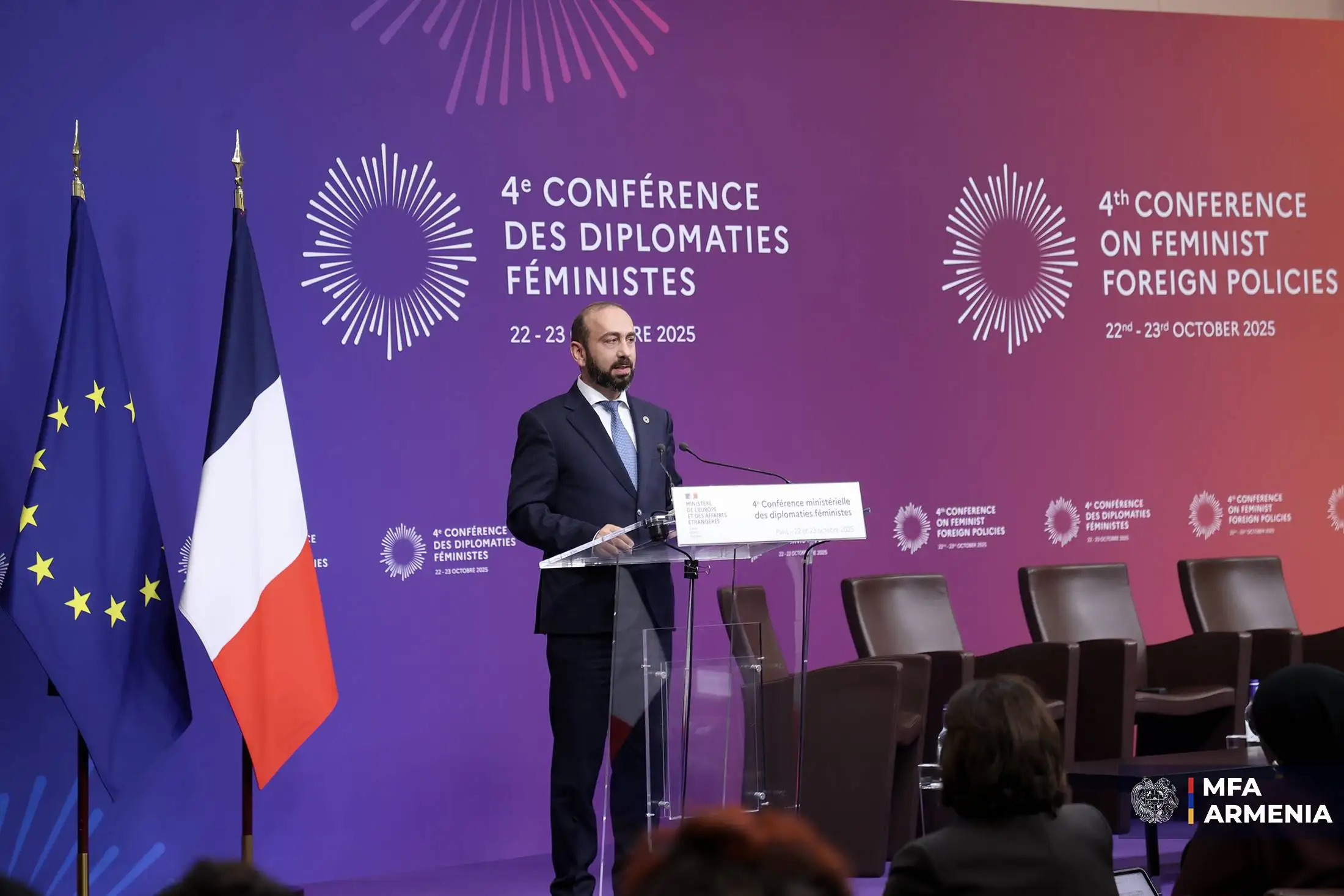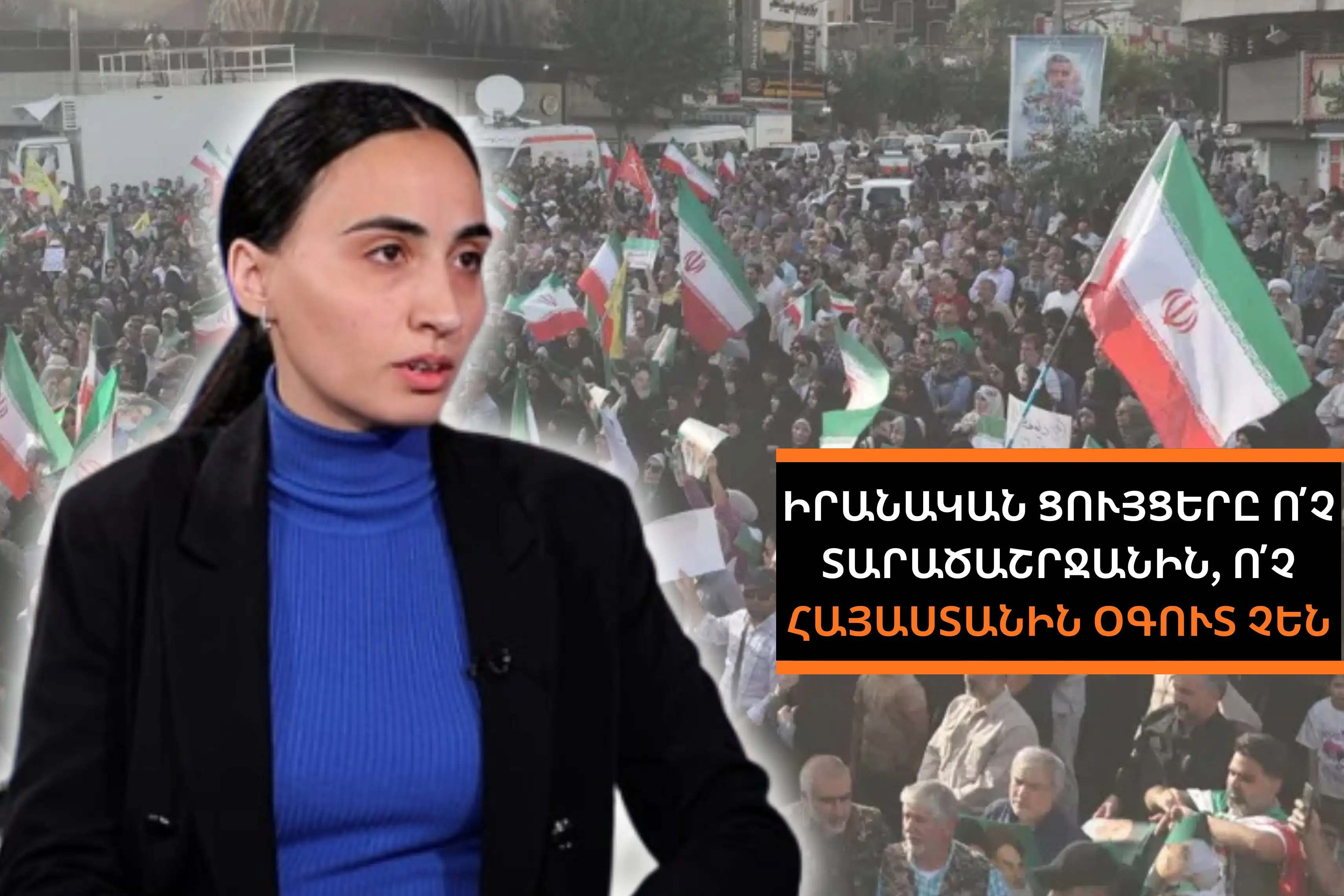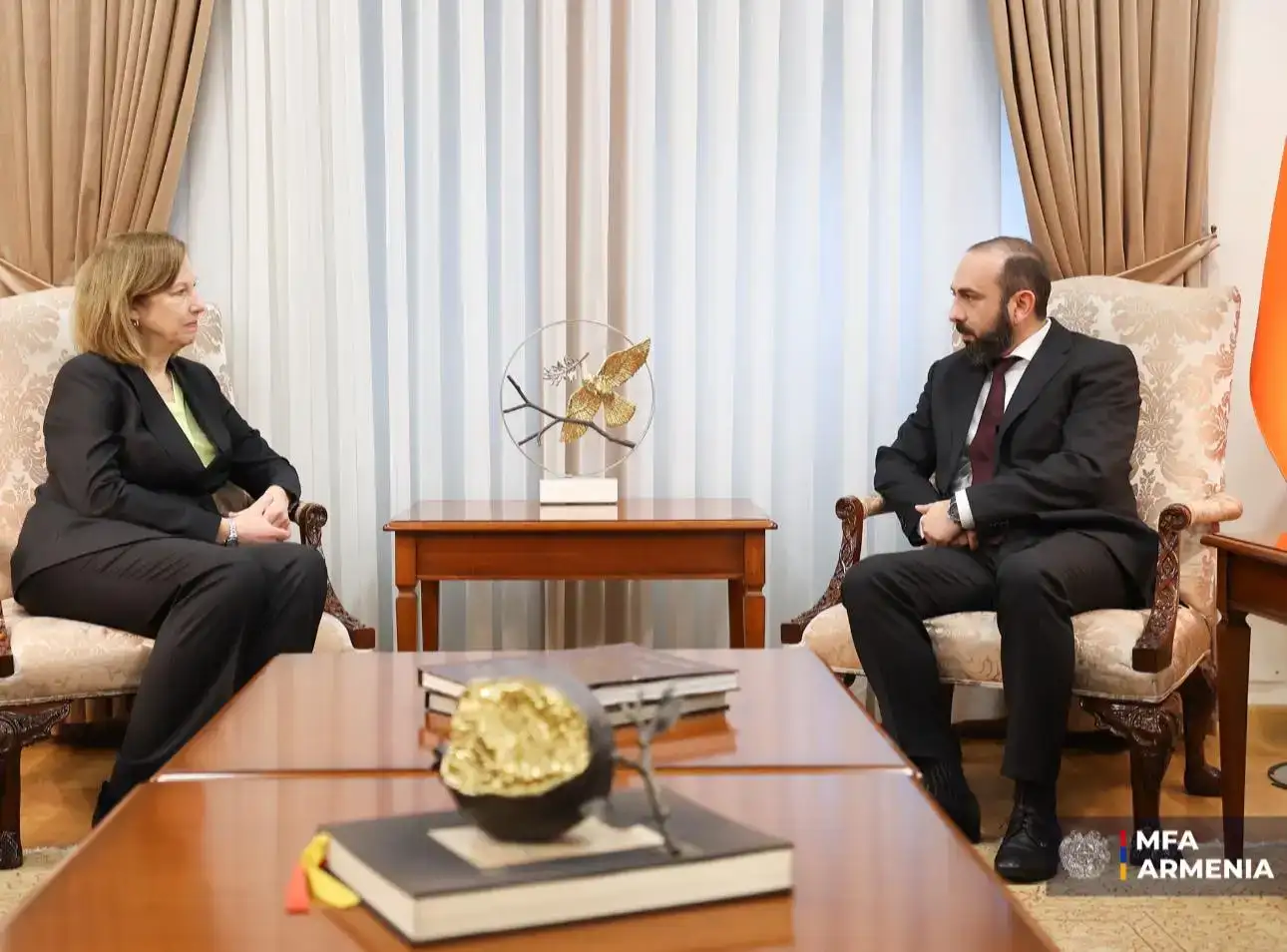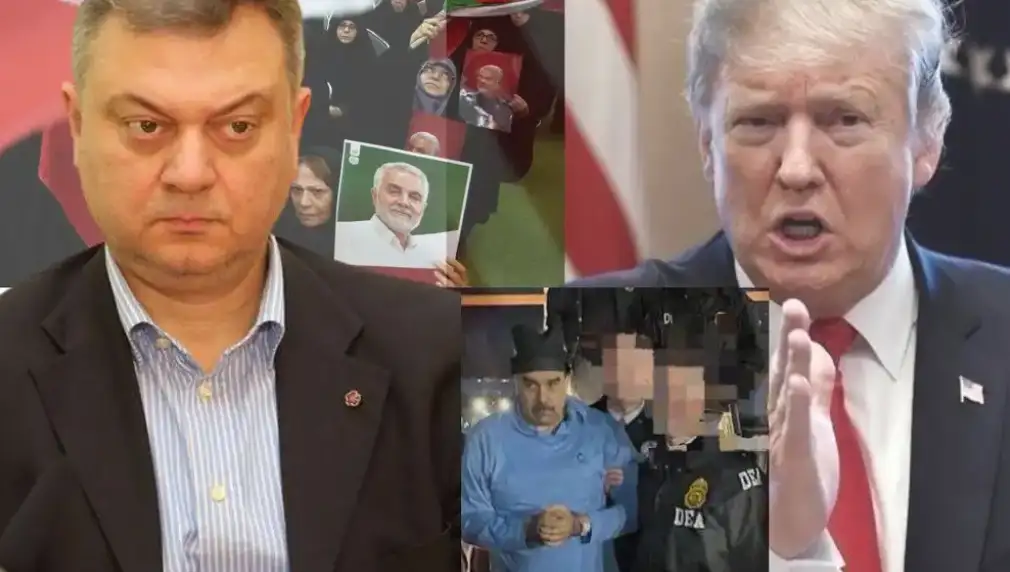RA Foreign Minister Ararat Mirzoyan delivered a speech at the opening ceremony of the 4th Ministerial Conference on Feminist Diplomacy.
"Dear Ministers, Your Excellencies, Ladies and Gentlemen,
It is a great honor for me to be here in Paris, a city whose essence symbolizes freedom and equality, to discuss this critical agenda.
I am here to express my strong solidarity with this agenda and with each of you individually —my solidarity as a Minister, as a human being, as a man.
So, I would like to express my gratitude to Minister Jean-Noël Barrot for organizing this important conference on feminist foreign policy, as well as to the French government for its leadership in promoting women's rights, inclusiveness, and peace-based diplomacy.
As we mark the 25th anniversary of UN Security Council Resolution 1325, we face a complex paradox. There is a strong international framework that recognizes both the disproportionate impact of conflict on women and their indispensable role in peacebuilding. However, the gap between principle and practice remains large and, unfortunately, is widening.
Across the world—from Ukraine and the Middle East to Africa and beyond—we are witnessing the devastating human toll of this failure. Women continue to feel the consequences of conflict, bearing the brunt of loss and insecurity.
For Armenia, the theme of our gathering —"The Time for Peace Has Come" — has profound meaning. Peace has been established between Armenia and Azerbaijan, ending a protracted conflict that was marked by bloodshed, violence, loss of life, displacement, and profound trauma. Both countries are now working to institutionalize peace and normalize relations, going through the difficult path of reconciliation.
So, I come from a region where mothers, wives, sisters, and daughters have suffered, felt the heavy consequences of conflict, and the pain of losing their loved ones. And today, it is very compelling and emotional to speak about their significant role in promoting the idea of regional reconciliation in our society. Emotionally, because each of us is aware of the difficulties they have gone through. Compelling, because through the peace agenda that exists today, we seek to address and prevent such problems, such as losses, in the future.
I am sure that the women listening to me at this moment in Armenia share the conviction that peace is the key —the only key — to preventing these losses for future generations. I am also sure that these women, whether consciously or instinctively, feel their special role in the difficult mission of promoting peace, at a time when the wounds are still very fresh and painful. The state stands firmly by its side.
Dear colleagues,
Even in the face of severe difficulties, the challenges have not weakened; on the contrary, they have strengthened our determination to advance gender equality and women's empowerment as a fundamental means of promoting human rights and democracy, and as a basis for sustainable development and social progress. From combating gender-based violence and discrimination to expanding the opportunities of women and girls in education, science, technology, and engineering, our efforts cover all spheres of public life. If previously men predominated in the technological sector, now about 30 percent of those working in this field in our country are women, which exceeds the global average of 20 percent. Overall, female scientists in Armenia make up almost 52 percent of our country's researchers, significantly exceeding the global average of 30 percent.
Today, women already hold 36 percent of the seats in our National Assembly. Key institutions that have traditionally been headed by men, including the Ministries of Justice and Interior, as well as the Prosecutor General's Office and the recently established Foreign Intelligence Service, are now headed by women.
Armenia is committed to promoting women's leadership and equal participation in the diplomatic service. The share of women in Armenia's diplomatic service is 44.4 percent, and this number is growing, continuing the legacy of Diana Abgar, an Armenian diplomat from the early 1900s who was one of the first female representatives of modern diplomacy and a proud symbol of Armenia's unwavering belief in female leadership. But this progress is not just statistical. This merit-based approach represents a profound cultural shift aimed at building a more just, and therefore more stable and effective, state.
These domestic transformations are also shaping our international engagement. One of the manifestations of this is that:
- In 2022, Armenia co-authored the UN General Assembly resolution proclaiming the “International Day of Women in Diplomacy”,
- Armenia actively participates in the UN Women flagship initiative “Generation Equality”,
- Armenia has joined the “Technology and Innovation for Gender Equality” coalition of actions.
Of course, one of the most significant and, indeed, tangible manifestations of this approach is the recently adopted Third National Action Plan on “Women, Peace and Security” by Armenia, entitled “Investing in Global Efforts for Peace”. It is deeply rooted in the conviction that peace is not just an abstract aspiration, but a lived experience, especially in border communities, in the integration of refugees, and in the voices and leadership of women.
Your Excellencies,
It is undeniable that much has already been achieved, but there is still much work to be done, as the path of progress is never complete. We will continue to commit to this process, with the unwavering conviction that real progress is possible only when the principles of equality and democracy are fully implemented and become the lasting foundations of peace and sustainable development.
I wish all participants in this conference fruitful discussions.
Thank you.”




















